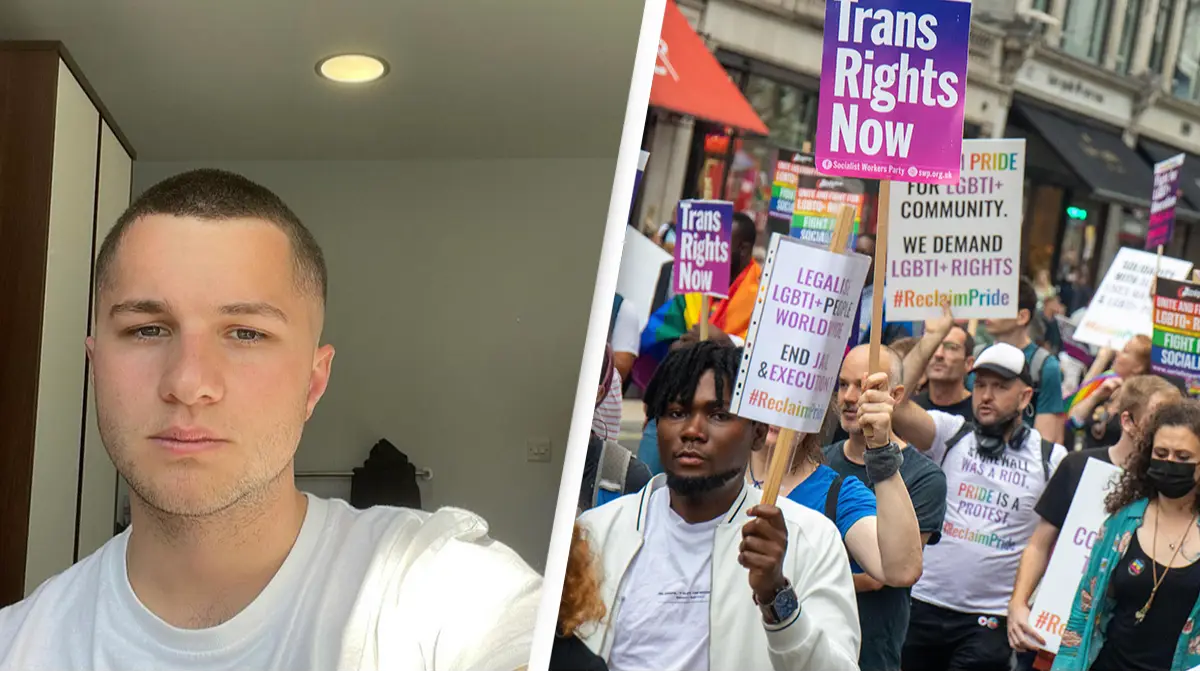
It shouldn't have been easy to find people who have been subjected to anti-LGBTQ+ abuse to speak to me for this piece.
Unfortunately, one click on social media revealed a very different reality: a community living in fear that a simple act like holding their partner's hand could land them in A&E, or worse. A community sick and tired of those happy to look the other way.
One of the first times I went to Manchester's gay village, a man shouted at me, saying he was going to stab me and my friends while making homophobic remarks. I was terrified. As the guy finally stumbled away, we ran to a nearby bouncer for help to little avail – more than five years later, I've never forgotten that incident. Whether it's a stare that lasts a bit too long, a whisper, a snide comment in a bar or a physical assault, it's clear for anyone to see that homophobia and transphobia has far from gone away, no matter how many rainbow-branded clothing items and window displays we see during Pride Month.
Same-sex marriage has been legal in England and Wales since 2014. For many, it marked a pivotal milestone for LGBTQ+ tolerance and echoed hopes for a more progressive society. But why, in the years since, are hate crimes against the LGBTQ+ community on the rise?
Advert
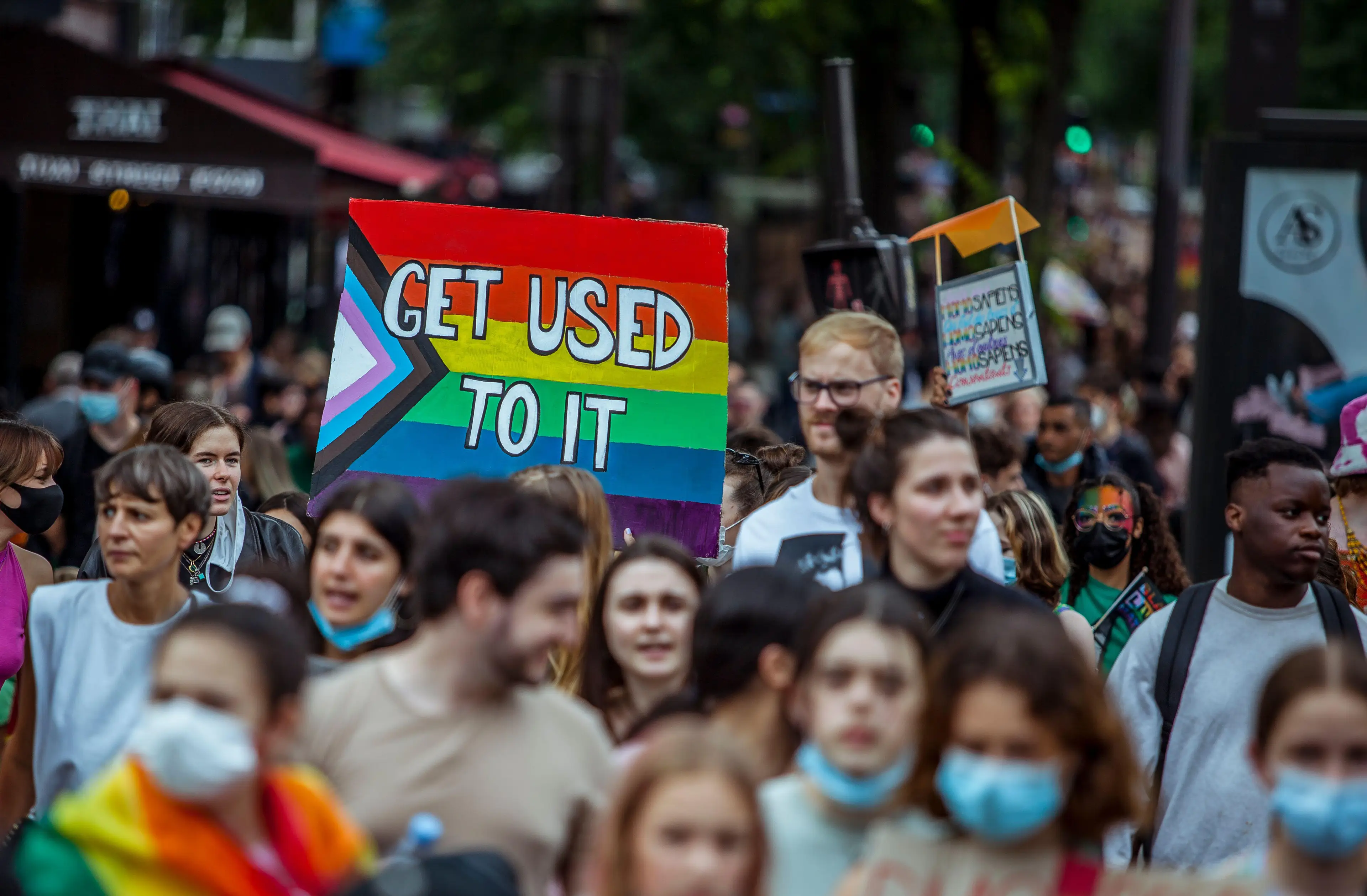
Earlier this month, new figures released by the Home Office revealed a shattering reality. Hate crimes against people based on their sexual orientation have risen every year since 2016/17, with 17,135 reported to the police compared to 8,569 four years ago. Meanwhile, figures obtained by VICE through Freedom of Information requests from all 45 police forces across the UK found the number of homophobic hate crime reports has tripled over the last six years, while the number of transphobic hate crime reports has quadrupled.
Figures like these are thought to be just the 'tip of the iceberg', according to Leni Morris, CEO of Galop, the UK’s LGBTQ+ anti-abuse charity. Morris told UNILAD that 'anti-LGBT+ hate crime is disproportionately on the rise in the UK'.
In July last year, Dr Gary Jenkins was ruthlessly murdered in a random homophobic attack in a park in Cardiff. Dr Jenkins' murder not only highlighted that the issue is still prevalent, but amplified the existing anger and heartache within the community, where simply existing can apparently send you to an early grave.
During LGBT history month, UNILAD spoke to three individuals who have been victims of anti-LGBTQ+ abuse. The frustration is clear to see.
'I think people target us because we're different, like a circus show to them,' said Anais Matthews, who was the target of a homophobia-driven verbal abuse in 2020.
'[I was ] having a picnic with my girlfriend at the time in Bedford when lockdown restrictions were easing and being called f*ggots by a large family in the park, hollered at and told to get our filth away from their kids – we were just holding hands,' Anais said.
'The park incident has had quite an impact on how I saw myself and created an immense pressure to kind of 'perform' in the relationship for my family and friends to prove it wasn't just another 'gay relationship'. [It] made me see queerness as lesser than and I struggled to express myself and my queerness at the time.'
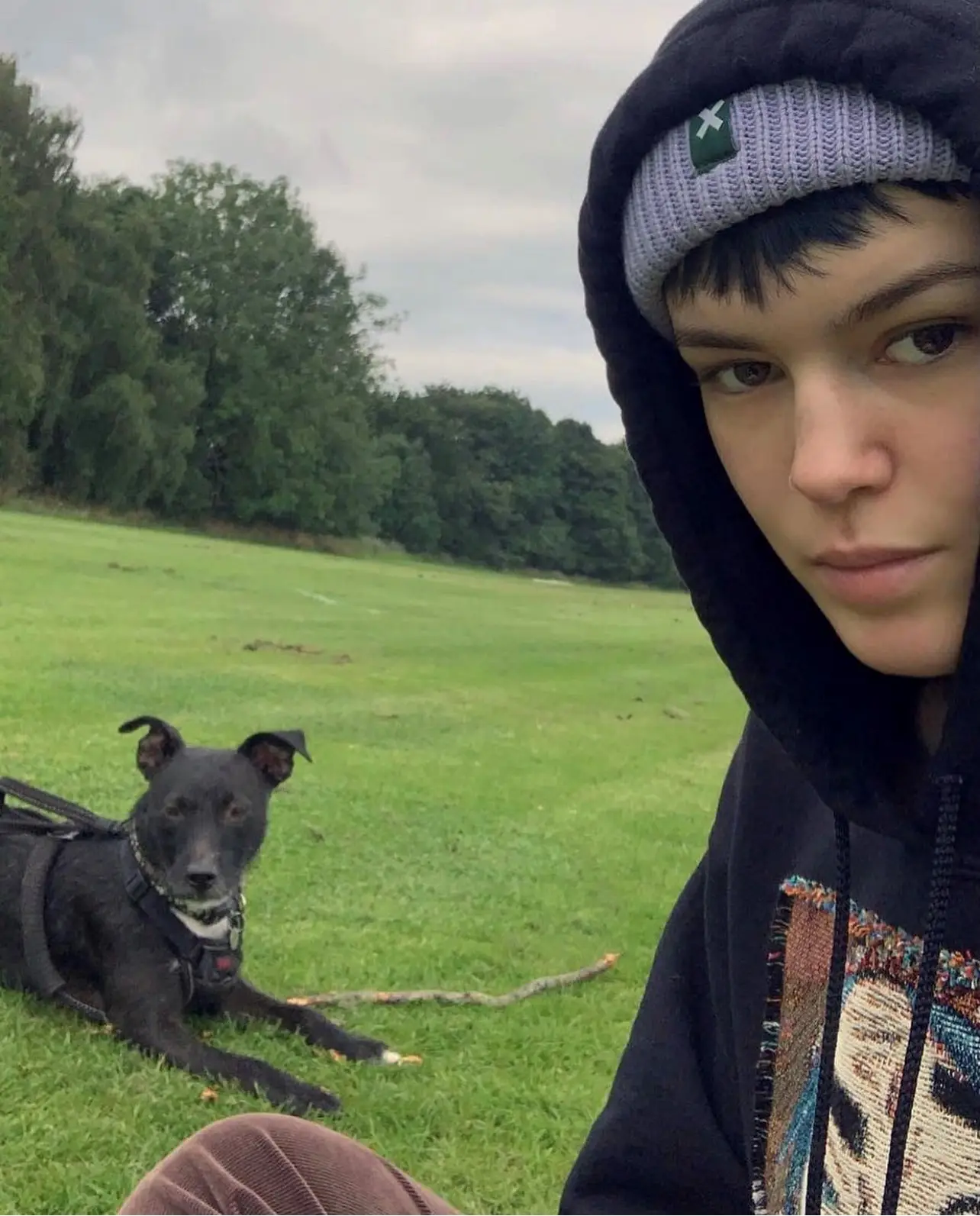
In June last year, Anais began working at a bar in Manchester's gay village, where they say attacks can be 'daily'. 'You see multiple over the weekends when it's busy.'
Sadly, so-called safe spaces are often the target for anti-LGBTQ+ attacks. For instance, two murals on Richmond Street in the city's gay village were vandalised with homophobic abuse over the summer. Meanwhile, police in Birmingham announced they were stepping up patrols following a spate of homophobic attacks in the city's gay village in October last year. Similarly, Merseyside police also scaled up patrols following incidents of homophobic and transphobic hate crimes in the city in June last year.
'We even have homophobia in the bar', Anais told UNILAD. 'Some straight people come in and ask the bar in disgust why there are gay people kissing. Some people come in just to shout slurs, there's a lot. A lot of my coworkers have come home with black eyes from homophobic attacks and we're often targeted when trying to walk home at night if we are LGBTQIA+ presenting,' they explained. 'Instead of celebrating our differences, they see it as a spectacle to mock and suppress'.
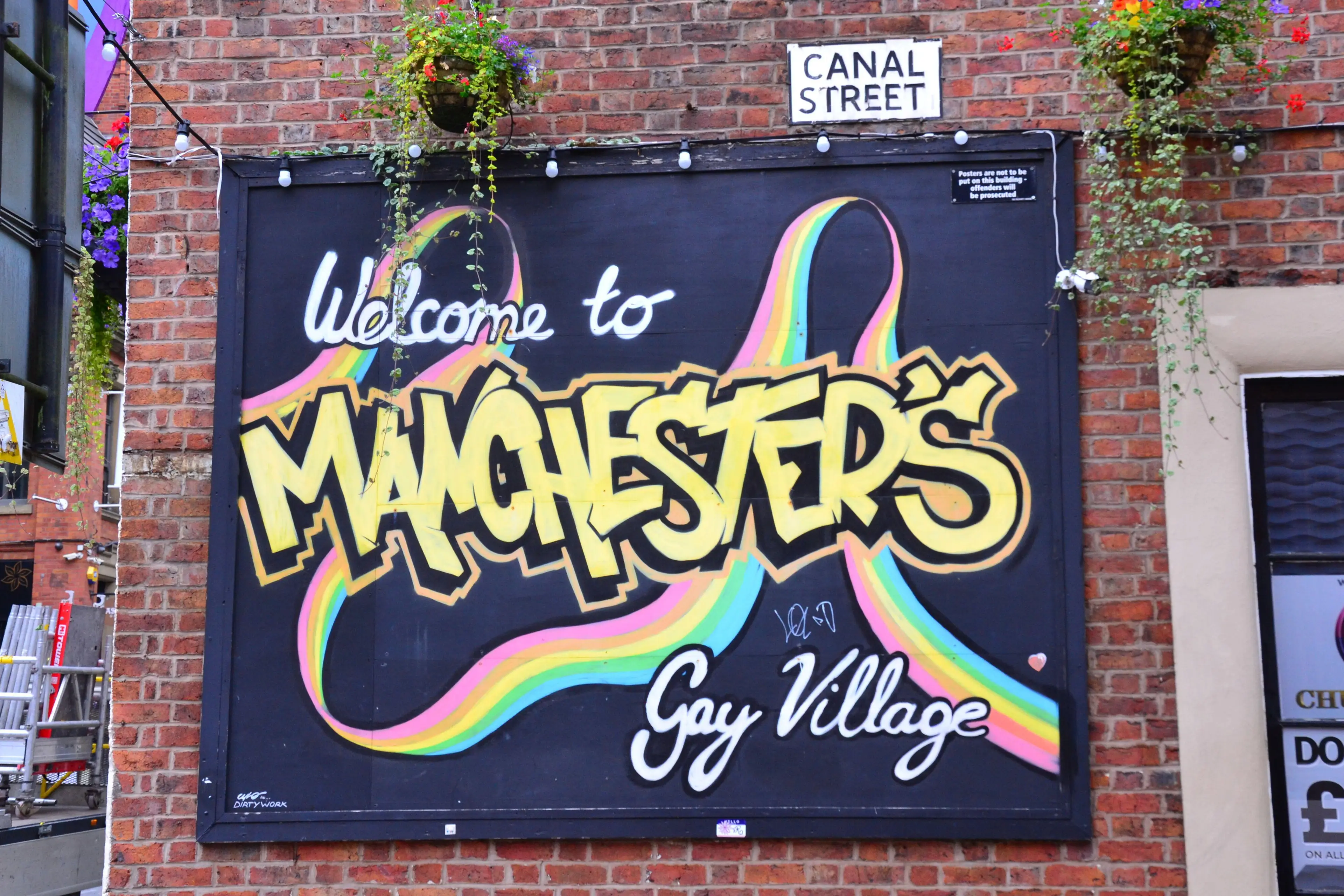
With homophobic attacks increasing year on year, Morris believes there's a 'misconception' that people are becoming more accepting of the LGBTQ+ community. 'Galop’s pre-pandemic polling showed that 1 in 5 people in the UK still think that being LGBT+ is immoral, with 1 in 10 people believing LGBT+ people were a danger to others,' she said.
Liv Santley, 22, also knows what it's like to be targeted because of who you are. On July 23, 2021, she ended up in hospital following an attack after a night out in Soho with her friends.
After a man and his girlfriend 'bumped' into them during the night out at the popular Heaven nightclub, the group went to McDonald's for some food, only to notice the pair seemed to be 'waiting outside [...] being really sketchy'.
It didn't take long for things to escalate. 'We then came outside and they threw food at us and got really verbally abusive with my friends and myself and saying homophobic stuff,' Liv told UNILAD. 'I told them to leave us alone and get away from us and the boy the punched me in the face and knocked me out to the ground. My friend then ran after him and recorded him telling him not to punch girls – the boy then proceeded to punch him and knock my friend out too.'
Liv and her friend both ended up in hospital with concussion. She says she reported the incident to the police straight away, but nothing was done, describing the police's response as a 'joke'.
'I emailed the police after they had messaged me for a statement of what happened, sending them pictures of our injuries and no response', she said.
UNILAD reached out to the Met police for comment, who provided the following statement: 'On Friday, 23 July 2021, police attended a fast food restaurant following a report of an altercation between two groups at a fast food restaurant on the Strand, Westminster. It was reported that following a verbal dispute, a 22-year-old woman had been punched in the face and fallen to the ground, where she fell briefly unconscious. Another man was also punched and suffered facial injuries.
'Officers called the London Ambulance Service and the woman was taken to hospital for treatment. Enquiries were carried out including examining whether any CCTV captured the incident but none was found. The case was closed; this can be re-opened should any further evidence come to light.'

The statement continued: 'We know that hate crimes – people targeted due to their gender, ethnicity, sexual orientation or other protected characteristic – are traumatic for those affected and wider communities. Each BCU has a hate crime co-ordinator to monitor and tackle crimes and trends and encourage reporting; we know many of these crimes are under-reported and work closely with partners, for example LGBT+ organisations such as Galop, to encourage victims to come forward.'
More than six months on from the attack, Liv says she's more 'wary' when she goes out now. 'I always watch what I'm doing [or] saying if I do get a bad vibe from someone,' she said.
'No one seems to be making an action against it, like how the police responded. There just needs to be so much more support and help for stuff like this – it’s not good enough'.
Morris echoed Liv's frustration, highlighting the 'postcode lottery' victims are faced with if they do reach out for support. 'In the last year we’ve seen violent attacks in many parts of the country and yet accessing one-on-one support in the wake of hate crime remains a postcode lottery. Despite 1 in 5 victims of anti-LGBT+ hate crime saying they need it, only 4% have access to this kind of support', she said.
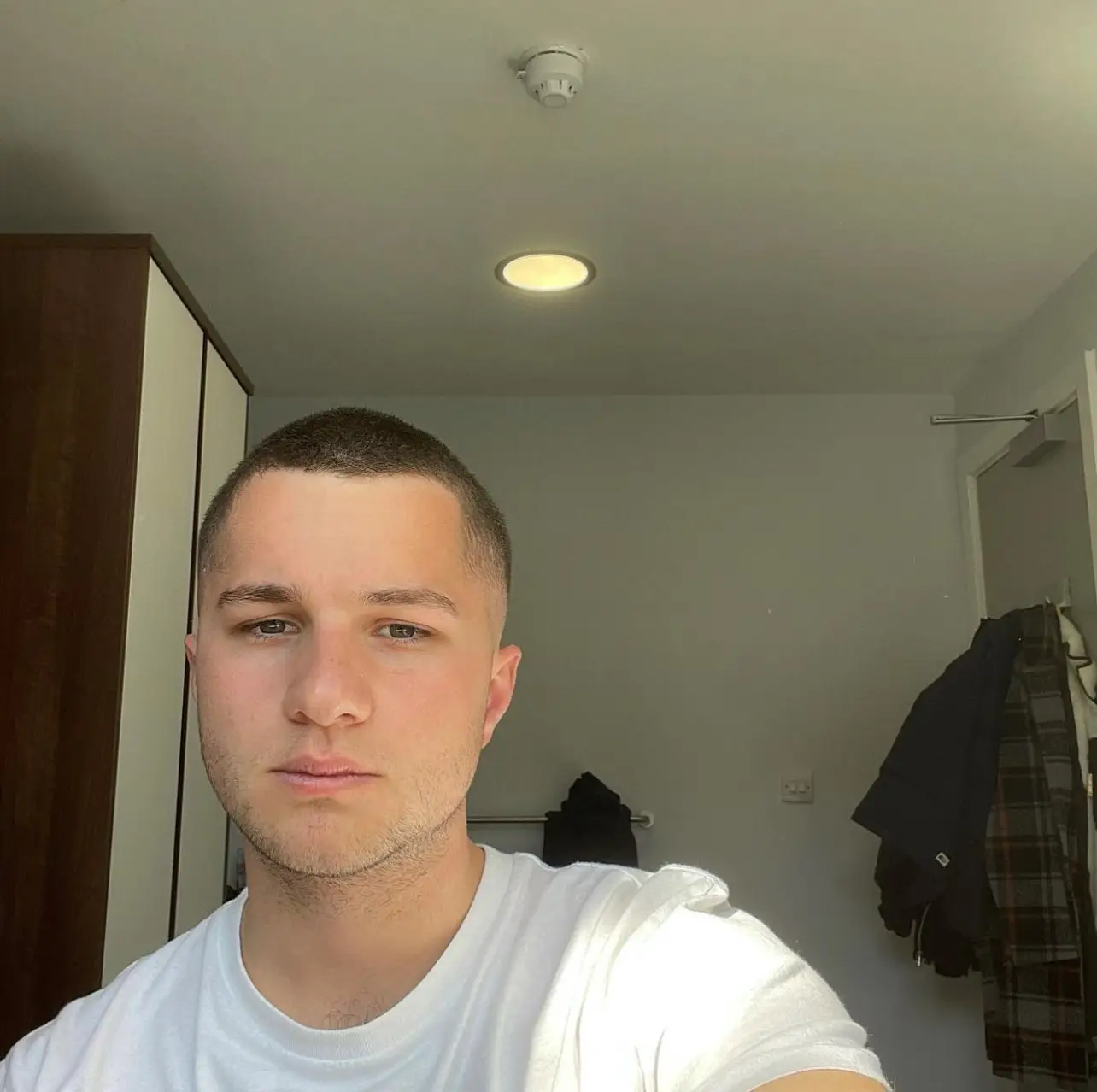
19-year-old Mitchell Burns-Jackson's experiences with homophobia started in school after he came out aged 14, when it seemed people were given the 'green light to go stronger in the hate'. 'In one of my PE lessons I was told by a student that I threw like a ‘f**got’. When I asked for the support of my teacher he replied with, ‘Mitchell is not gay and neither is his boyfriend’.'
'There were toilets that I didn’t go into because I was accused of only going in to look at other boys, I was heckled both in class, in the corridors and on the playground, with one incident being recorded and placed on social media,' he recalled. 'All my experiences have stuck with me, from the little ones to the larger ones.'
More recently, Mitchell recalled a chant he said broke out on a SportLiverpool Athletics Union bus in which people began shouting 'there's a gay on the bus'. While not directed specifically at him, he was disappointed by the response. 'When I complained I didn’t feel enough had been suggested or recommended on how the university could help with this,' he said.
Mitchell, who founded HERO (Helping Educate Regarding Orientation), a non-profit aiming to 'provide essential support services to LGBTQ+ people', turned his attention to a topic that became a glaring theme among those I spoke to – the lack of support.
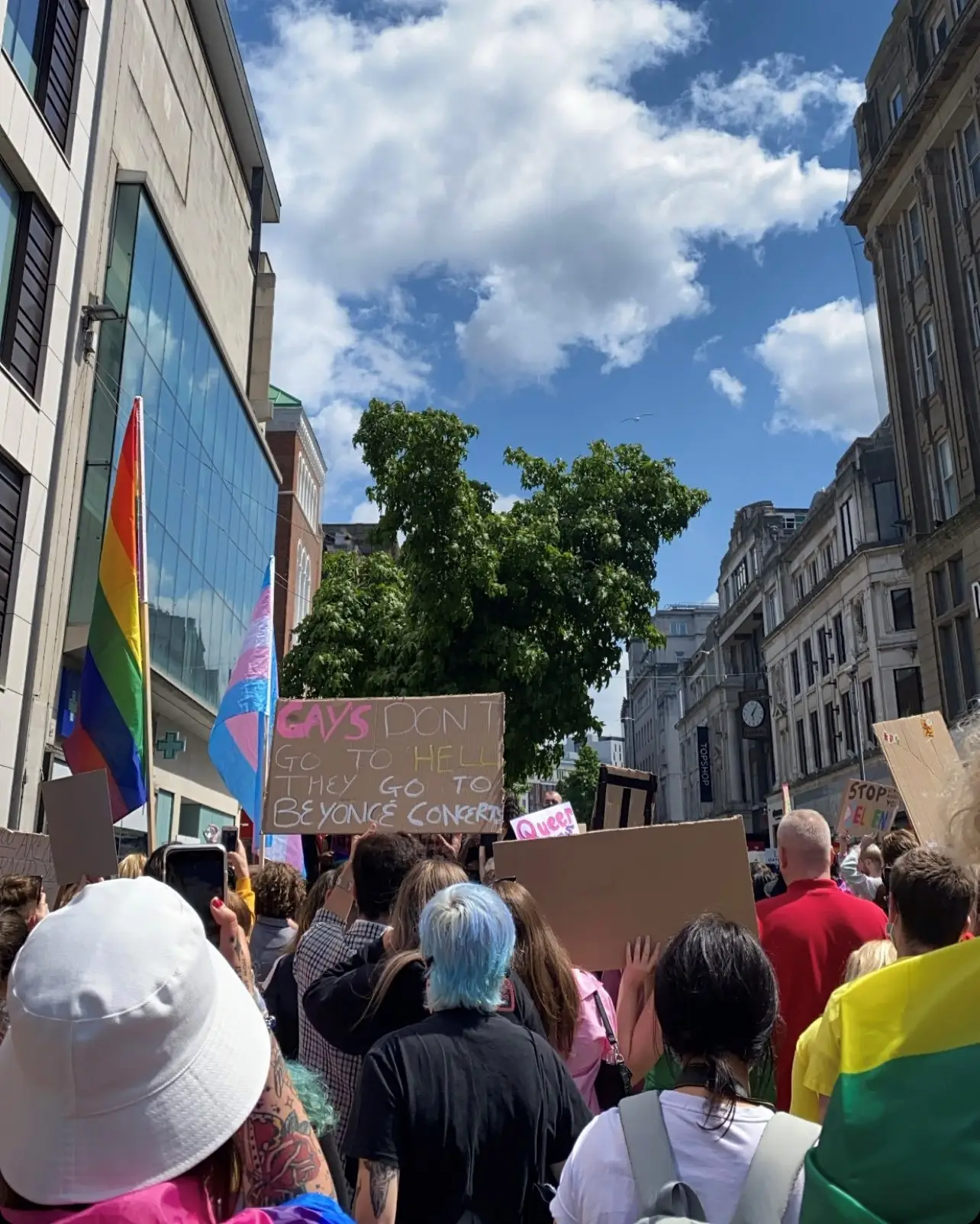
'Unfortunately, in the UK we have wonderful policies and legislation but the implementation of that policy has failed – queer people don’t want to report hate crimes for either fear of the how the police will treat them, especially considering the police have not always been our friends, or from the fear that their complaint wont be upheld. Implementation is just as important as the creation of the policy or legislation,' he told UNILAD, before turning the spotlight on social media – something he describes is increasingly being used as a 'harbinger of hate'.
'The current legislation is not equipped to tackle this new vessel of hate, and social media companies are not quick enough to act on it.'
While Mitchell is quick to acknowledge how 'lucky' he is 'to have had the opportunity to turn my negative experiences into ones that I’m hoping have helped other young queer people', many others haven't had that same experience.
LGBT History Month works to highlight how much progress we've made, the community's visibility in society and the trailblazers that fought for those changes. However, the facts and figures show there is still more work to be done in not only legislation, but support services and education too.
People are being attacked – and in some cases, killed – for just existing as LGBTQ+. We can't look the other way, not anymore.
If you’ve been affected by any of these issues and want to speak to someone in confidence, contact Galop's LGBT+ Hate Crime helpline on 020 7704 2040, 10am–4pm Monday to Friday, or email [email protected]